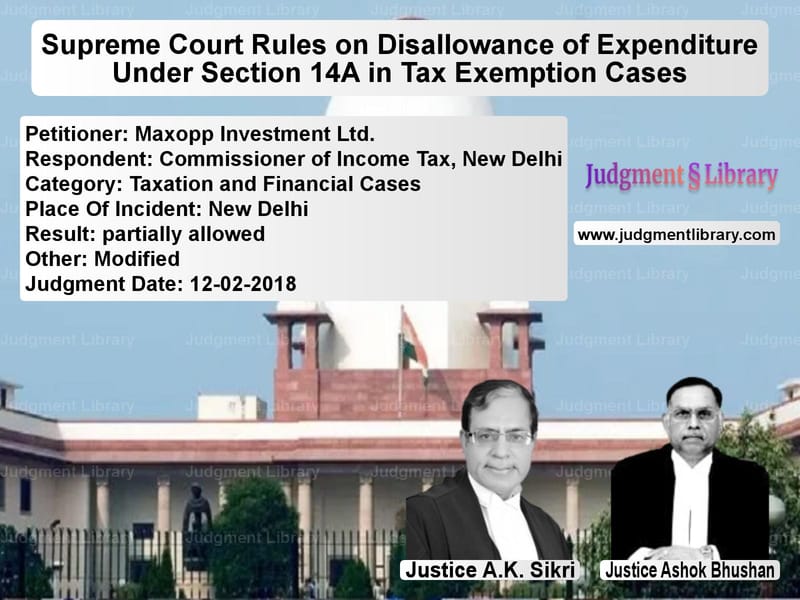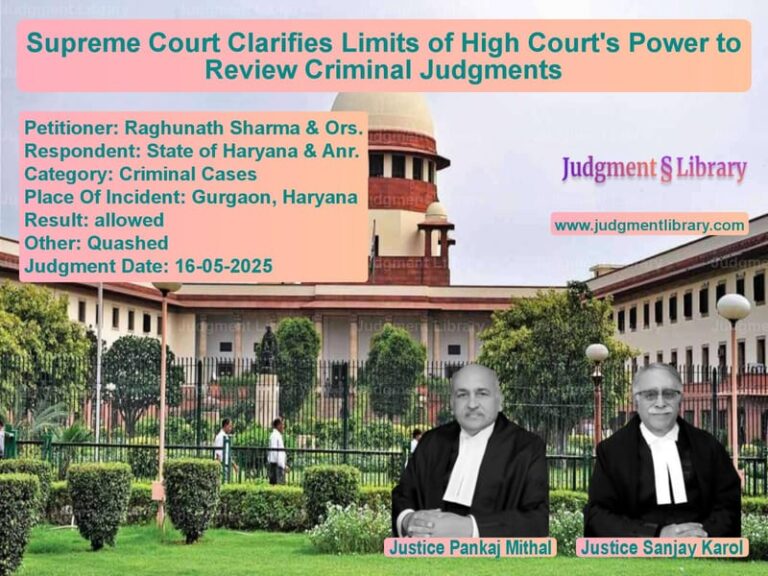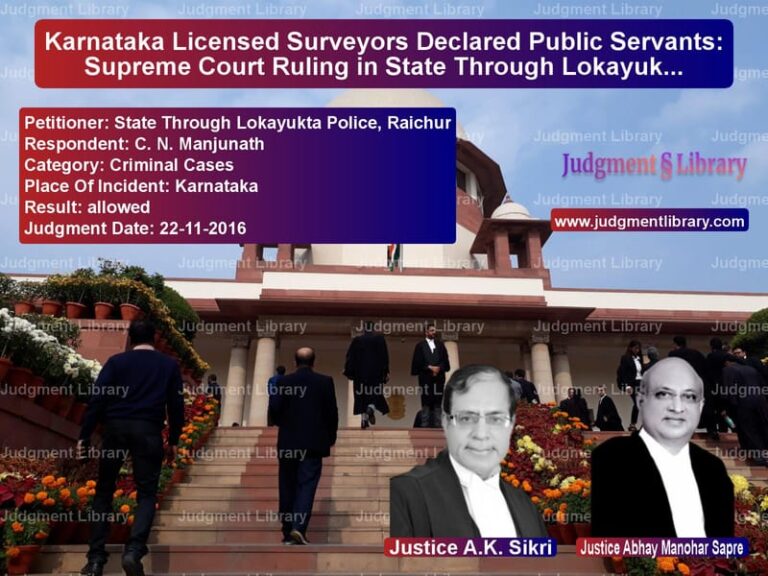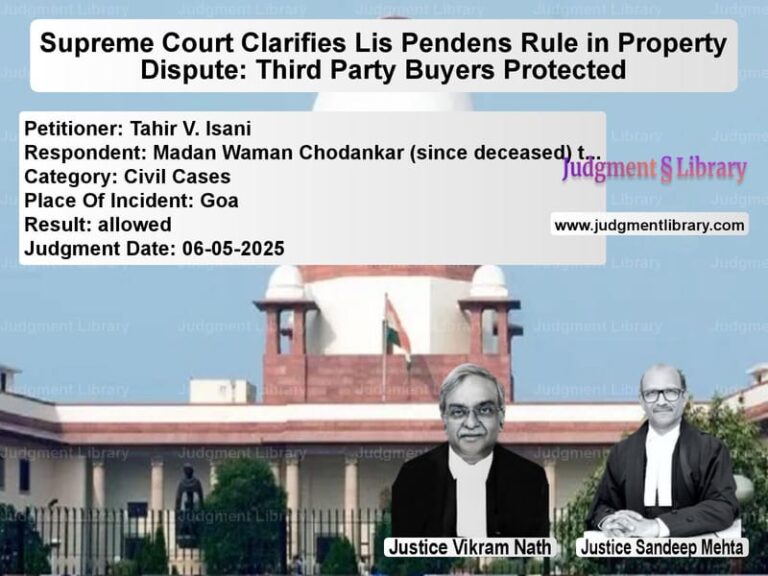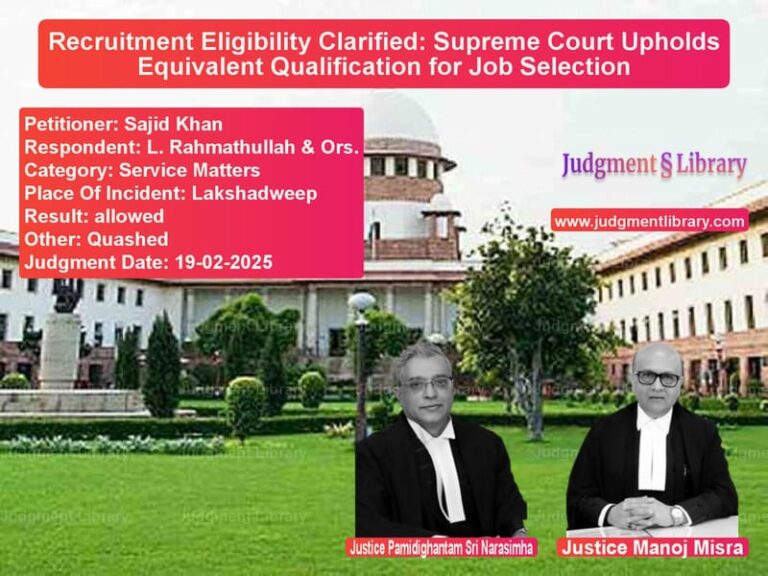Supreme Court Rules on Disallowance of Expenditure Under Section 14A in Tax Exemption Cases
The Supreme Court of India recently delivered a significant ruling in Maxopp Investment Ltd. vs. Commissioner of Income Tax, New Delhi, addressing the applicability of Section 14A of the Income Tax Act, 1961. The case revolved around whether expenses incurred for earning tax-exempt income should be disallowed.
Background of the Case
The dispute pertained to the taxation of dividend income earned by companies investing in shares. Some assessees claimed that such investments were made for acquiring control over companies and not primarily for earning dividends. The issue before the Court was whether expenses incurred for earning dividend income should be disallowed under Section 14A.
The Revenue relied on Section 14A, which states that if an assessee incurs expenses to earn income that does not form part of the total taxable income, such expenses should not be deducted. The case saw multiple appeals clubbed together, with various high courts having conflicting views on the matter.
Arguments Presented
Petitioners’ (Maxopp Investment Ltd. & Others) Arguments
- The investments in shares were made to acquire controlling interest in companies, not to earn dividend income.
- Dividend income was incidental and not the dominant purpose of the investment.
- Expenses incurred for acquiring shares should not be considered as incurred “in relation to” the dividend income.
- Section 14A should be interpreted narrowly, and only direct expenses related to dividend income should be disallowed.
Respondents’ (Commissioner of Income Tax) Arguments
- The purpose of Section 14A is to prevent assessees from claiming deductions on expenses incurred to earn tax-free income.
- Even if investments were made to acquire controlling interest, dividend income was still earned and exempt from tax.
- All expenses attributable to earning dividend income should be disallowed, irrespective of the assessee’s intention.
Supreme Court’s Ruling
A bench comprising Justice A.K. Sikri and Justice Ashok Bhushan ruled that the expenses incurred on investments made for earning dividend income are subject to disallowance under Section 14A. The key findings were:
1. Interpretation of Section 14A
The Court rejected the dominant purpose test and held:
“If an income does not form part of total income, then the related expenditure is outside the ambit of the applicability of Section 14A.”
The ruling confirmed that expenses need not be directly linked to dividend income; rather, any expenditure related to tax-exempt income should be disallowed.
2. Applicability to Shares Held as Stock-in-Trade
The Court distinguished between investments made to acquire control over a company and shares held as stock-in-trade. It stated:
“In cases where shares are held as stock-in-trade, the main purpose is to trade in those shares. However, incidental dividend income is still tax-exempt and thus, Section 14A applies.”
It ruled that expenses related to shares held as stock-in-trade must also be apportioned and disallowed.
3. Necessity of Recording Satisfaction
The Court emphasized that the Assessing Officer (AO) must record satisfaction before making a disallowance:
“The AO must determine whether the assessee’s suo moto disallowance is correct before applying the apportionment method under Rule 8D.”
This ensures that disallowances are not made arbitrarily.
4. Clarification on Rule 8D
The Court held that Rule 8D of the Income Tax Rules, which prescribes a formula for disallowing expenses under Section 14A, applies prospectively from 2007. Disallowances for years prior to 2007 must be based on reasonable estimates.
Key Observations
- The ruling clarifies that Section 14A applies irrespective of the purpose behind acquiring shares.
- Both investment and stock-in-trade holdings are subject to disallowance, though the extent of disallowance may vary.
- The decision ensures that tax-free income does not benefit from deductions meant for taxable income.
Conclusion
The Supreme Court’s ruling in Maxopp Investment Ltd. vs. Commissioner of Income Tax settles the longstanding debate on the applicability of Section 14A. The judgment prevents tax avoidance by ensuring that expenses incurred for earning tax-exempt income are not deducted. By rejecting the dominant purpose test and emphasizing the need for fair apportionment, the ruling strengthens the principles of tax fairness and revenue protection.
Petitioner Name: Maxopp Investment Ltd.Respondent Name: Commissioner of Income Tax, New DelhiJudgment By: Justice A.K. Sikri, Justice Ashok BhushanJudgment Date: 12-02-2018
Don’t miss out on the full details! Download the complete judgment in PDF format below and gain valuable insights instantly!
Download Judgment: Maxopp Investment Lt vs Commissioner of Inco Supreme Court of India Judgment Dated 12-02-2018.pdf
Direct Downlaod Judgment: Direct downlaod this Judgment
See all petitions in Income Tax Disputes
See all petitions in Tax Evasion Cases
See all petitions in Tax Refund Disputes
See all petitions in Judgment by A.K. Sikri
See all petitions in Judgment by Ashok Bhushan
See all petitions in partially allowed
See all petitions in Modified
See all petitions in supreme court of India judgments February 2018
See all petitions in 2018 judgments
See all posts in Taxation and Financial Cases Category
See all allowed petitions in Taxation and Financial Cases Category
See all Dismissed petitions in Taxation and Financial Cases Category
See all partially allowed petitions in Taxation and Financial Cases Category

